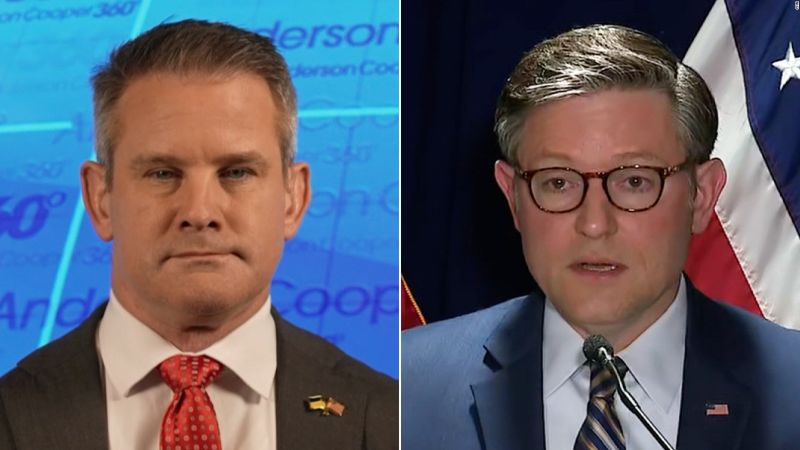"Unacceptable": Kinzinger Blasts Johnson's Shield for Trump's Controversial Pardons

In a sharp critique, former Republican congressman Adam Kinzinger has called out House Speaker Mike Johnson for his defense of former President Donald Trump's controversial pardons and commutations related to the January 6th Capitol riot. Kinzinger, known for his vocal opposition to Trump and his role in the January 6th investigation, expressed concern over Johnson's stance, which appears to be protecting individuals who were involved in the violent insurrection.
The criticism highlights the ongoing tension within the Republican Party regarding the events of January 6th and the subsequent legal consequences for those who participated in the attack on the U.S. Capitol. Kinzinger, who has been a prominent voice challenging Trump's narrative, continues to push for accountability and condemn actions that he believes undermine democratic principles.
By defending these pardons, Johnson has drawn criticism from those who view the January 6th riot as a serious threat to American democratic processes. Kinzinger's comments underscore the deep divisions within the Republican Party and the ongoing debate about the events of that day.

